|
Ra- Ve Cultural Foundation was started in 2018 with the aim of bringing Indian traditional performing arts to where we live, right here in Northwest Arkansas. Who we are is rooted in centuries of rich cultural heritage, and we abide by our responsibility to celebrate and share this, in the hope that it brings peace and happiness to the generations to come. We want to thank each and everyone of you who has bought a ticket, donated their time or money, sponsored our events, or just showed up to say you value this experience in our community. Ekam Satyam Bahuda Vadanti is a phrase from the vedas…meaning the “One truth that many speak.” The world today is divided on so many counts - the way we look, the way we dress, our food, our languages, and not to mention our beliefs, but now more than ever it is critical that we find common ground and celebrate humanity. The concert brought together NWA artists from very different backgrounds on the stage today. Though each one has learned a different style of the same Carnatic music, they performed in perfect harmony. They performed songs from a timeline of almost 15 centuries. Yet, these songs are present in our collective consciousness even today! Each one of the poets, musicians showcased stands out for their unique contribution to this common body of literature and music that we call Carnatic music. Here is a small introduction to all the artists who performed at this wondrous concert: Vijayashri Vittal is the artistic director of today’s performance. Born and raised in a family of musicians, Vijayashri started her musical training from her grandmother, Smt Krishnaveni and her father, Vidwan Vittal Ramamurthy, an internationally acclaimed violinist. She is also a senior disciple of Vidhushi Bombay Jayashree. Dr. Priya P Ram works full time as a Data and Analytics Manager and has been performing and teaching Indian music in the NWA region since 2014. She began training in Carnatic music at a young age under the tutelage of Smt. Kunnakudi Saroja and Smt. Saraswathi and later trained with Smt. Bhooshany Kalyanaraman. Vidya Ramachandhiramani , is a software engineer by profession and has been learning music from the age of 6 . She underwent her training during her early years with Smt. Sankari, in Chennai. Vidya received her advanced training in Carnatic music from Acharya choodamani. Sri. A. Sundaresan, the asthana Vidwan of Kanchi Kamakoti. Dr. Kartik Balachandran has learnt violin in Singapore from Smt. Dhanadevi Mitradeva and Sri K. Sivaraman, both senior disciples of Prof. Sri T.N. Krishnan. He was awarded the title of Vadya Visharad in 1999 from the Singapore Indian Fine Arts Society for his excellence in music. Santhosh Ramaswamy began his musical journey at a young age taking to Mridangam, the principal drum of South Indian Classical music. With several years of training and guidance from masters in the art form, he has been performing in concerts accompanying eminent artists in the Carnatic music tradition for over two decades. The evening began with a varnam, traditionally performed as the first piece in any Carnatic concert. The varnam marries lyrics, swarams/notes and encapsulates the distinct features of the chosen raga or mode. This varnam was in the beautiful raga of Kalyani, a prominent raga in the Carnatic music tradition, known for its versatility in conveying emotions. Composed in the late 1800’s by Sri Ramanathapuram Srinivasa Iyengar, this song describes a young lady pining for her beloved Lord Krishna. Vanajakshiro - Kalyani ragam - adi talam/8-beat cycle. While the earliest devotional compositions in Carnatic music were around the 12th century AD, we consider the mid-1700s to mid-1800s as the golden era. This was the time when the Carnatic music trinity, or three great composers lived. Shri Shyama Shastri, Shri Thyagaraja, and Shri Muthuswamy Dikshitar. The trinity were instrumental in the development of Carnatic music, via their prolific number of compositions, and the codification of different aspects of Carnatic music theory. The cocnert proceeded with one of the most popular compositions of Shri Muthuswamy Dikshitar, Vathapiganapathim bhajeham in the raga Hamsadhwani, adi tala, composed in Sanskrit language. This is a hymn in the praise of Ganesha, the remover of obstacles. All the artists performed very effortlessly, especially in the fast-paced swara improvisation on the last line of the song. This was followed by a song by Saint Thyagaraja who was a contemporary of Dikshithar and part of the Trinity of Carnatic music. He is said to have composed more than 24000 songs in various languages, predominately in Telugu and mainly in praise of Lord Rama. Amongst all the beautiful songs he has composed, there are 5 that are considered his best - The Tyagaraja Pancharatna Krithis. Today, our artistes will present the fifth pancharatna - Endaro Mahanubhavulu… In this song, Tyagaraja, with great humility, pays respects to all the great souls who have come before him - those who have uplifted the poor and weak, have spread love and joy amongst everyone, have immersed themselves in music and devotion, recognize the same eternal soul in one and all and live in love and peace - the core idea behind our concert - Ekam Satyam, Bahuda Vadanti . The song was performed beautifully by the singers and the audience was enthralled. Devotion and music transcends time. While Carnatic music as a formal musical system was codified starting from the 12th century AD, devotional music predated this. Priya and Vidya presented a composition of Kothai Naachiyaar or Andal, the only female of the 12 AaZhvaars or esteemed devotees of Vishnu. Andal was the reputed poet - saint of the Tamils.
The song describes what happens when one is filled with love and devotion to the Lord. It goes on to say that while the goodness and devotion of even one lone believer will ensure prosperity and plenty for everyone in the land, with so many devotees, there is no limit to how much good will happen to this world. This was followed by the main piece of this concert - the ragam tanam Pallavi (RTP). The Ragam Tanam pallavi (RTP) is a musical form in Carnatic music with improvisation at its center, explored in three distinct ways. First, in the Ragam was a raga alapana. In this form of pure melodic improvisation, the musician starts with a refrain to create the mood of raga and lays a foundation for the composition to follow. Tanam - is the second component of this composite form of improvisation. Originally developed for the veena, Tanam consists of expanding the raga with the rhythmic syllables "a-nam-tam". This thanam was explored on the violin. The lyrical component of the RTP is the Pallavi - The word Pallavi is derived from the three syllables Pa - Pada (words), La - Laya (rhythm) and Vi - Vinyasam (variations). Pallavi is the equivalent of a refrain in Western music. The Pallavi is usually a one-line composition set to one or more cycle(s) of a tala, and is followed by Kalpanaswaras/swarakalpana. As part of kalpanaswara, the musician delivers increasingly complex, improvised sequences in the Indian music solfege (sa, ri, ga, ma, pa, da, ni) within or towards the end of a composition. Kalpanaswara is integral to the pallavi portion of a Ragam Thanam Pallavi. The RTP sung today will be in Brindavana Saranga raga, and later improvised in other ragas, namely, Vaasanthi, Aabogi and Revathi. The audience reacted to this intense performance with a lot of appreciation. Even though this piece could be perceived as being technical, the choice of ragas and the interaction between the singers and the accompanists made it memorable and energizing to the audience. Perhaps the most popular piece of the concert was the abhang. The Abhang is a form of devotional poetry sung in praise of the Hindu deity Vittala, also known as Vithoba. The word "abhang" comes from a for "non-" and bhang for "ending" or "interrupting", in other words, a flawless, continuous process, in this case referring to a poem. While the devotional songs known as bhajan focus on the inward, contemplative journey, Abhangs are more exuberant expressions of the communitarian experience. This abhang is composed by sant Tukaram Maharaj. In this song, Tukaram warns people about Pandhari or Pandharpur. He says it is haunted by a dreadful ghost or spirit. Be careful when you are passing by this place or visiting it. This ghost nabs everyone going near the place. If you are afraid of being possessed by the ghost, change your path or just cancel your plan in the interest of your (so called) well being. While that was the literal meaning, in reality, Tukaram wants to suggest exactly the opposite. He hints, if you stay away from the place, you will never have the divine experience.Maharaj has used a soft humor in instilling a deep belief into the minds of people that the place is special. It is divine. It is the final destination the soul is searching to rest in peace. As tradition demands, the concert concluded with a Thillana. Dance enthusiasts in the audience will agree that Thillana is an exciting fast-paced musical form usually associated with Indian dance. This thillana was composed by Shri Lalgudi Jayaraman, one of the most prolific composers of Carnatic music in the modern era. Known for his thillana compositions, this one in the raga Yaman kalyani speaks to the grace with which lord Krishna plays on his flute and protects the grazing cows - all in a day’s work. At the end of the thillana, the singers presented a mangalam, a song expressing gratitude for a concert well done and prayers that peace be upon us all beings. We hope you enjoyed this concert through this blog. There is but one truth - whatever name you may know it by or still seek it. Rest assured that this truth is spoken by many. Ekam satyam, Bahuda Vadanti. If you liked this one, then join on the next on April 22nd, 2023! Your support means a lot! True to the spirit of all Ra-Ve events, everyone enjoyed the lovely Masala vadas from Chola Cafe at the end of the concert. Some supporters bought KIFA t-shirts to support our classes. Hope to see you at our next event. Below is a You tube Playlist of all the songs that were performed at this concert. Enjoy and follow us for more.
0 Comments
Leave a Reply. |
AuthorWrite something about yourself. No need to be fancy, just an overview. Archives
February 2024
Categories |
Our Sponsors and Supporters








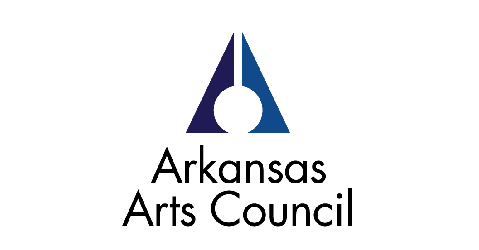
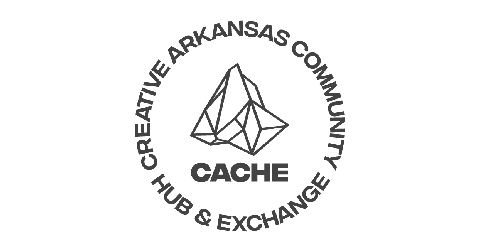


© Ra-Ve Cultural Foundation Inc. All rights reserved.
1380 SW Westpark Drive, Ste #2, Bentonville, AR 72712
Mailing Address: PO Box 1083, Bentonville, AR 72712
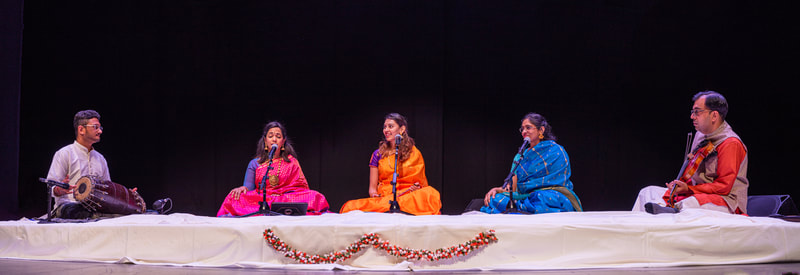
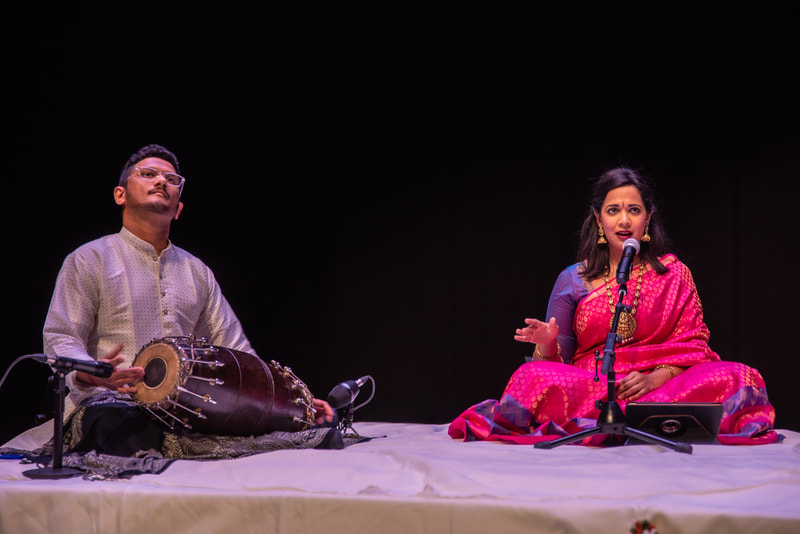
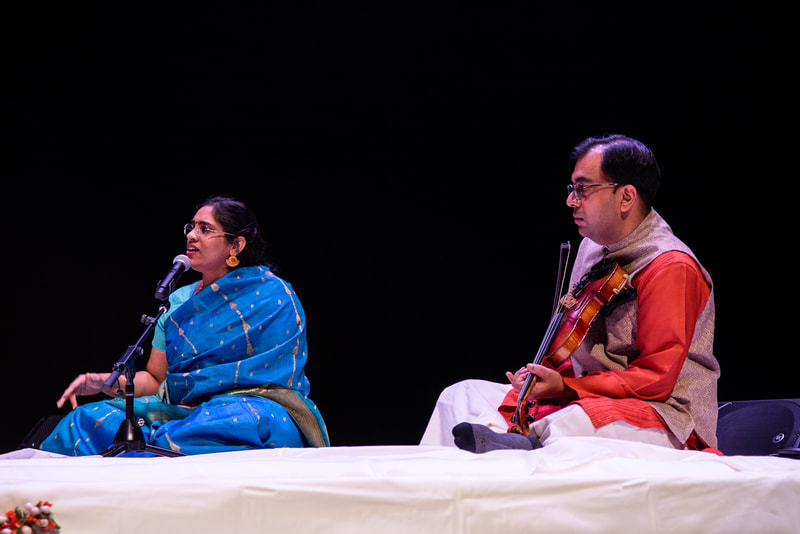
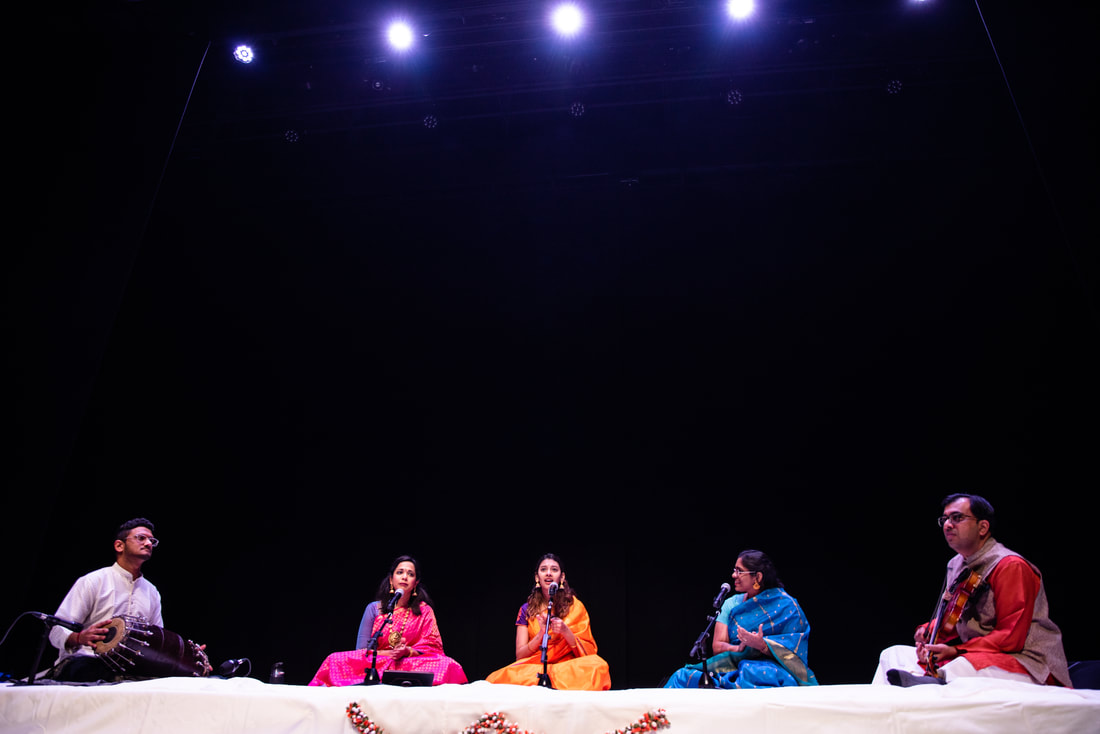
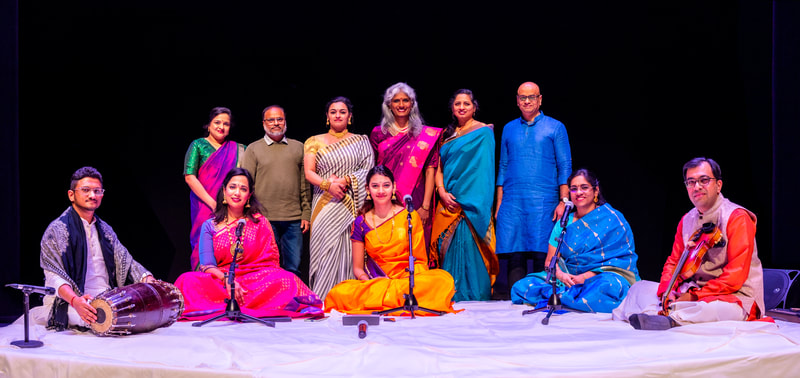
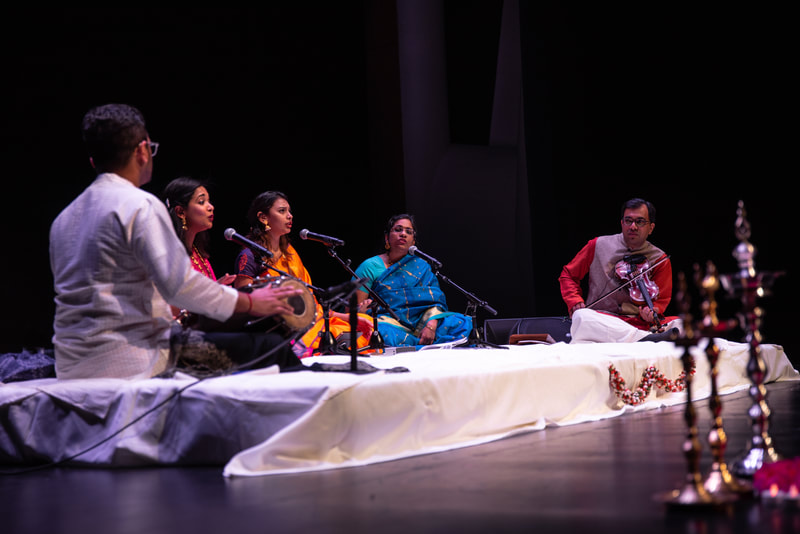
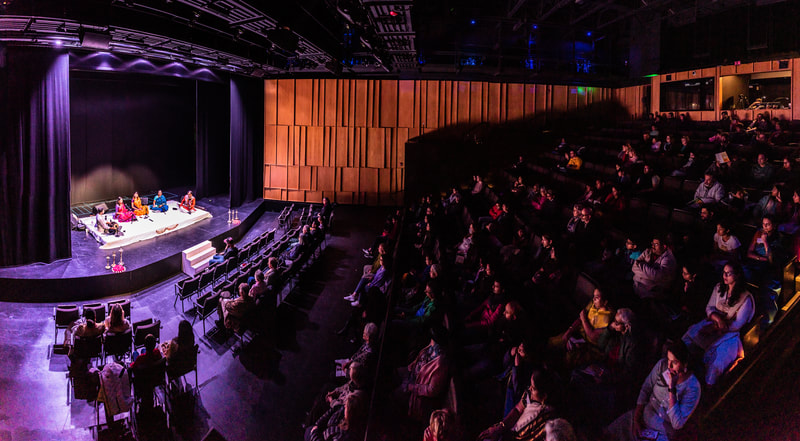
 RSS Feed
RSS Feed